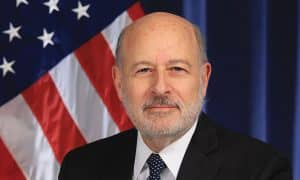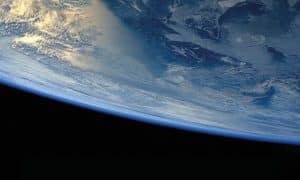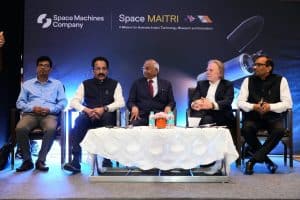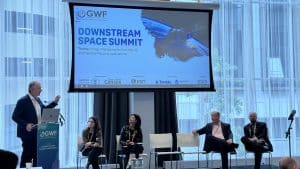The 2nd Day of Indo-Pacific Geointelligence 2023, had a plenary session on Space Sustainability & Security of Space Infrastructure where Dr. Brian Weeden, Director of Program Planning, Secure World Foundation talked about how cooperative solutions are necessary for Space Sustainability.
Space Sustainability & Security of Space Infrastructure has become very important in this growing digital age. Lack of sustainability would make emerging space countries face problems in using outer space effectively. Addressing the need for Space Sustainability ensures that outer space can be used by both space-faring and non-space faring nations.
Earth Observation, Telecommunications (including financial transactions, internet, and telephone), navigation and economic development will all be affected.
Orbital Debris: A Big Problem
Orbital Debris is a big problem as it can remain a threat for decades sometimes even centuries when produced in large quantities. Both accidents and intentional destructive events can produce large quantities of orbital debris making it a global problem necessitating the need to work together to ensure space sustainability.
There is more than 21,000 pieces of debris larger than about 10 cm are being tracked in orbit around the Earth, and there are as many as 500,000 additional untracked pieces larger than 1 cm.
Debris colliding with one of the more than 1,800 operational satellites could result in serious damage or complete destruction of the satellite.
Noelle Riza Castillo, Director of Bureau of Space Policy & International Cooperation, of Philippines Space Agency talks about the necessary need to create a framework to tackle threats like Space Debris falling in the region of the Philippines for security of space infrastructure.
Duncan Blake, Lecturer in Space Law and Strategy, Australian Defense Force Academy, UNSW talks about Space Security and Sustainability are linked with each other as each has a set of similar challenges and similar solutions. One reason is that the terrestrial and space domains cannot be delinked.
Another key point raised in the panel is that knowing more about the nature of the problem is critical to space sustainability. Sharing information about orbital debris, mitigating its production and even developing capabilities to remove existing debris represent key objectives toward ensuring that conditions in outer space are favourable to continued use for humankind.









